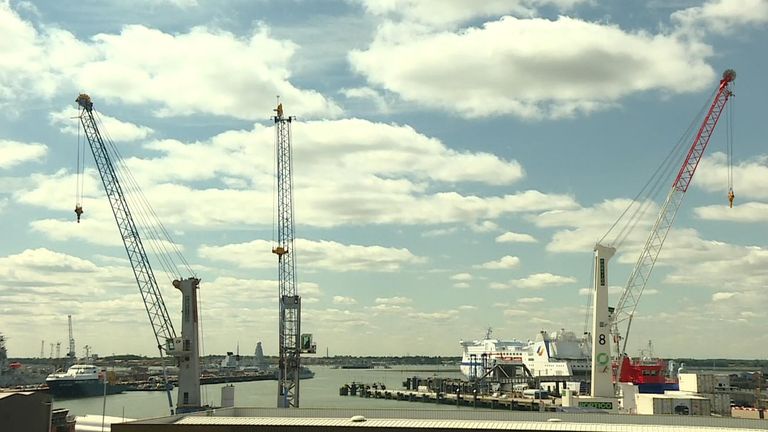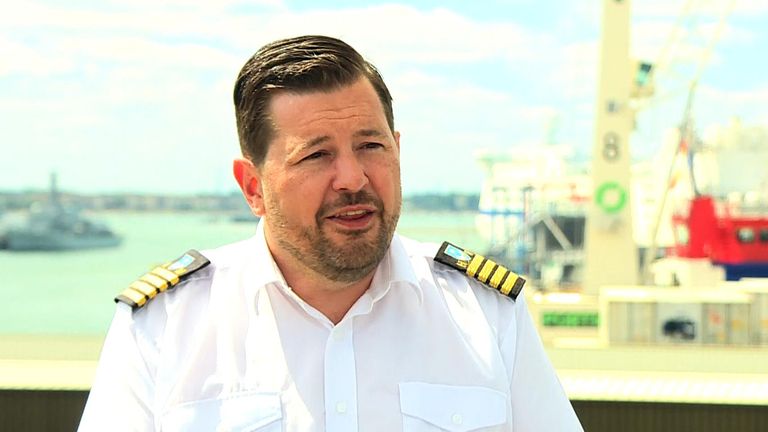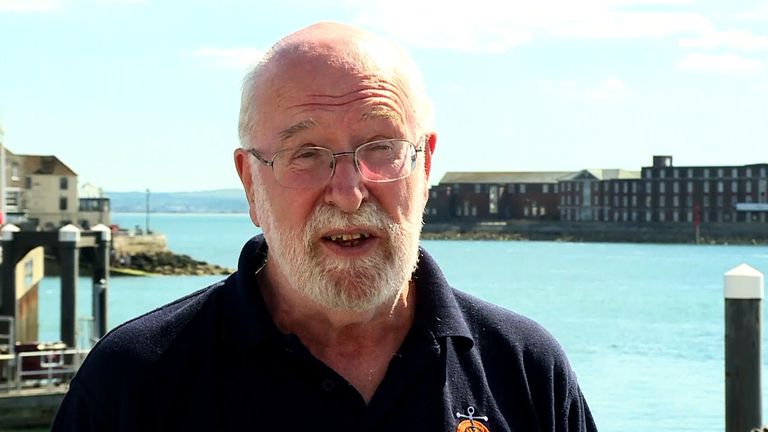Thousands of seafarers from around the world are stuck on ships suffering from “depression and anxiety” because COVID-19 restrictions mean crew changes still can’t take place.
The International Transport Workers Federation estimates there could be as many as 600,000 seafarers affected by lockdown measures, with half of them facing financial ruin.
They traditionally work fixed-term contracts but many governments have tightened up regulations during the pandemic and have not allowed seafarers to disembark at some ports.
Seafarers would usually be on board ships for between six and nine months, but some have now been at sea for more than a year.
Some are said to have struggled with issues such as claustrophobia while others have missed important family moments such as births and deaths.
Portsmouth harbourmaster Ben McInnes, who worked at sea for 12 years, said: “There’s going to be a lot of depression and anxiety around the fleet.
“Everything we do as an island nation has revolved around seafarers bringing goods to the UK and exporting goods from the UK.
“Whether it’s the car you drive or the fuel it uses, or the banana you peel, that has come here from Colombia via Portsmouth. Everything comes on a ship.
“And now they are involuntary prisoners on that ship because the ship will continue to run.”
Portsmouth International Port kept operating throughout the lockdown on a freight-only basis, though passengers have recently returned.
One cruise ship docked last week and gave its exhausted crew a daytrip around Portsmouth as a treat.
Former seaman Charles Stuart, who works as a lay chaplain with the Stella Maris charity, said: “(The seafarer’s) greatest fear is financial uncertainty.
“Seafarers are tough people and they are used to living in difficult conditions, but the pressure of staying onboard for so long just increases their day-to-day difficulties.”
:: Listen to the Daily podcast on Apple Podcasts, Google Podcasts, Spotify, Spreaker
Twelve countries including the UK, the US, the UAE and the Philippines struck a deal last week at a summit in London to waive visa restrictions.
They also agreed to speed up air repatriation efforts.
Mr Stuart added: “There’s a danger that they will be forgotten. They have been the lifeblood of keeping things flowing, without a break. They are real heroes and deserve our support.”



